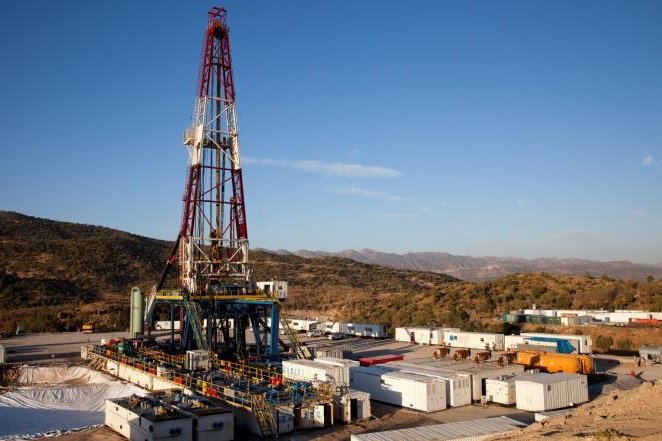Sales agreement reached with the Kurdish government for the sale of oil, a Canada-based company announced Friday. Photo courtesy of the Abu Dhabi National Energy Company
Sept. 29 (UPI) -- Operations in the Kurdish north of Iraq are going according to plan and sales agreements are moving forward, a Canadian energy company said Friday.
ShaMaran Petroleum Corp., a Canadian company with a focus on oil operations in the Kurdish north, said it was releasing details Friday about an agreement between joint venture partners and the Kurdish government for the sale of oil from the Atrush field. Under the terms of the agreement, the Kurdish government agreed to buy oil based on the dated price for Brent crude oil, minus $16 per barrel for discounts, local and international transportation costs.
CEO Chris Bruijnzeels said operations at the Atrush field, which started production in July, were going as planned.
"I am very glad that we concluded the sales agreement with the Kurdistan Regional Government, which allows us to proceed with invoicing for oil exported from the Atrush field," he said in a statement.
Atrush production is expected to reach a design capacity of 30,000 barrels of oil equivalent per day by the end of the year and ShaMaran said most of that is already designated for exports. The Abu Dhabi National Energy Co., known also as TAQA, is the operator of the Atrush field, located about 50 miles northwest of the Kurdish capital, Erbil. TAQA described the field as "one of the largest new oil developments in the Kurdistan region of Iraq."
The revelation Friday followed an announcement from the KRG that nearly all of those taking part in a referendum this week cast their ballot in favor of independence from Iraq.
U.S. State Department spokeswoman Heather Nauert told reporters during a regular press briefing Thursday that Washington viewed the referendum as destabilizing, but it was still keeping up with normal diplomatic relations.
"Our relationship with the Kurds, in our view, will not change," she said.
The referendum was contentious and was condemned by most major world powers, but there are few indications so far that oil and gas operations in the region are impacted.
A pipeline from the Kurdish north has the capacity to carry 550,000 barrels of oil per day. Kurdish oil exports north through Turkey have been at times targeted by the group calling itself the Islamic State and, apart from trucking lanes, the Kurdish government would have few alternatives for oil exports should Turkey shut things down.
The threat of a supply disruption from the Kurdish north pushed oil prices higher earlier this week, though the risk premium has ebbed. The price for Brent crude oil was trading in negative territory early Friday.















